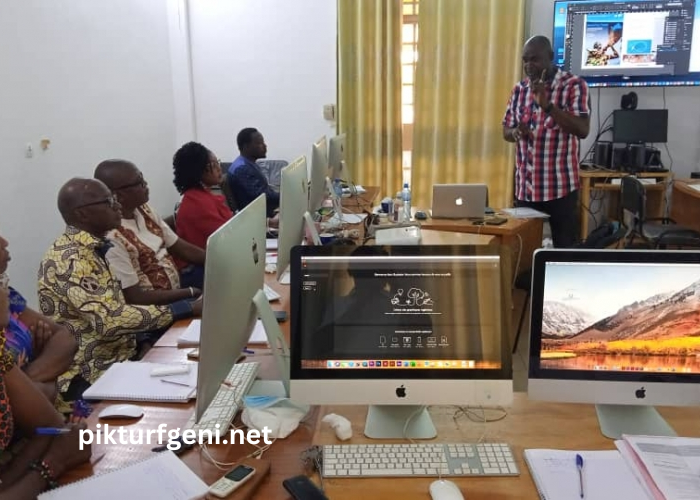The public procurement system in Burkina Faso, known as DGMP (Direction Générale des Marchés Publics), plays a pivotal role in the country’s economic development. This system ensures that public resources are used efficiently and transparently to achieve the best value for money. In this article, we will delve into the various aspects of DGMP Gov BF, exploring its structure, processes, challenges, and the impact it has on Burkina Faso’s economy and governance.
History and Evolution of DGMP Gov BF
Origins of Public Procurement in Burkina Faso
Public procurement in Burkina Faso has its roots in the colonial era when the French administration established the initial frameworks. Post-independence, these frameworks evolved to meet the needs of a growing nation.
Development of DGMP
The DGMP was officially established to centralize and streamline public procurement processes. Over the years, it has undergone numerous reforms to enhance its efficiency and transparency.
Structure of DGMP Gov BF
Organizational Hierarchy
The DGMP is structured with various departments and units, each responsible for different aspects of the procurement process. This includes planning, tendering, contract management, and compliance.
Key Departments
Key departments within DGMP include the Procurement Planning Department, Tendering Department, and the Compliance and Monitoring Unit. Each department plays a crucial role in ensuring the smooth functioning of public procurement.
The Role of DGMP in Public Procurement
Ensuring Transparency
One of the primary roles of DGMP is to ensure transparency in the procurement process. This is achieved through strict adherence to regulations and open bidding processes.
Promoting Efficiency
DGMP aims to promote efficiency by streamlining procurement processes and reducing bureaucratic delays. This helps in timely project execution and optimal use of resources.
The Procurement Process
Planning and Budgeting
The procurement process begins with meticulous planning and budgeting. This involves identifying needs, allocating funds, and preparing procurement plans.
Tendering and Bidding
Once the planning is complete, the tendering process begins. This includes the preparation of tender documents, public announcements, and the evaluation of bids.
Contract Management
After selecting the winning bid, the contract management phase ensures that the terms of the contract are adhered to. This includes monitoring project progress and ensuring timely delivery.
Legal Framework Governing DGMP
National Laws and Regulations
The public procurement process in Burkina Faso is governed by national laws and regulations. These laws provide the legal basis for all procurement activities and ensure compliance with international standards.
International Standards
Burkina Faso’s public procurement system aligns with international standards, ensuring that the country remains competitive and attractive to international investors.
Challenges Faced by DGMP
Corruption and Fraud
Corruption and fraud are significant challenges that DGMP faces. Despite strict regulations, these issues persist, undermining the integrity of the procurement process.
Capacity Building
Another challenge is the need for continuous capacity building. Ensuring that staff are well-trained and up-to-date with the latest procurement practices is crucial for the success of DGMP.
Technological Advancements in DGMP
E-Procurement Systems
DGMP has embraced technological advancements by implementing e-procurement systems. These systems enhance transparency, efficiency, and accountability in the procurement process.
Data Analytics
Data analytics tools are being used to analyze procurement data, identify trends, and make informed decisions. This helps in improving procurement strategies and outcomes.
Case Studies of Successful Projects
Infrastructure Development
Several successful infrastructure projects have been completed under the supervision of DGMP. These projects have significantly contributed to the country’s economic development.
Health and Education Projects
DGMP has also overseen numerous health and education projects, ensuring that public resources are used effectively to improve the quality of life for citizens.
Impact of DGMP on Burkina Faso’s Economy
Economic Growth
Effective public procurement has a direct impact on economic growth. By ensuring efficient use of resources, DGMP contributes to the overall economic development of Burkina Faso.
Job Creation
Public procurement projects create numerous job opportunities, contributing to employment and income generation in the country.
Future Prospects and Reforms
Ongoing Reforms
DGMP is continually undergoing reforms to address existing challenges and improve its efficiency. These reforms aim to enhance transparency, reduce corruption, and streamline processes.
Future Plans
Future plans for DGMP include further integration of technology, capacity building, and alignment with international best practices. These efforts will ensure that DGMP remains at the forefront of public procurement.
The Role of International Organizations
Support and Assistance
International organizations play a significant role in supporting DGMP. This includes providing technical assistance, funding, and capacity building programs.
Collaboration and Partnerships
Collaboration with international organizations helps DGMP to adopt best practices and improve its procurement processes. Partnerships with entities like the World Bank and African Development Bank are particularly beneficial.
Public Participation in Procurement
Stakeholder Engagement
Engaging stakeholders, including the public, is crucial for the success of public procurement. DGMP actively involves various stakeholders in the procurement process to ensure transparency and accountability.
Civil Society Involvement
Civil society organizations play a critical role in monitoring public procurement activities. Their involvement helps in identifying issues and advocating for reforms.
Monitoring and Evaluation
Importance of Monitoring
Continuous monitoring and evaluation of procurement activities are essential for ensuring compliance and achieving desired outcomes. DGMP has established robust monitoring mechanisms to track project progress.
Evaluation Frameworks
Evaluation frameworks help in assessing the efficiency and effectiveness of procurement processes. These frameworks provide insights into areas that need improvement.
Training and Capacity Building
Staff Training Programs
DGMP regularly conducts training programs for its staff. These programs focus on enhancing skills, updating knowledge, and ensuring adherence to procurement regulations.
Capacity Building Initiatives
Capacity building initiatives extend beyond staff training. They include workshops, seminars, and partnerships with academic institutions to build a knowledgeable and skilled workforce.
Conclusion
DGMP Gov BF plays a crucial role in Burkina Faso’s public procurement system, ensuring that public resources are used efficiently and transparently. Despite challenges, the organization has made significant strides in enhancing procurement processes and achieving economic development goals. Continuous reforms, technological advancements, and international collaborations will further strengthen DGMP’s capabilities, contributing to a more prosperous Burkina Faso.
